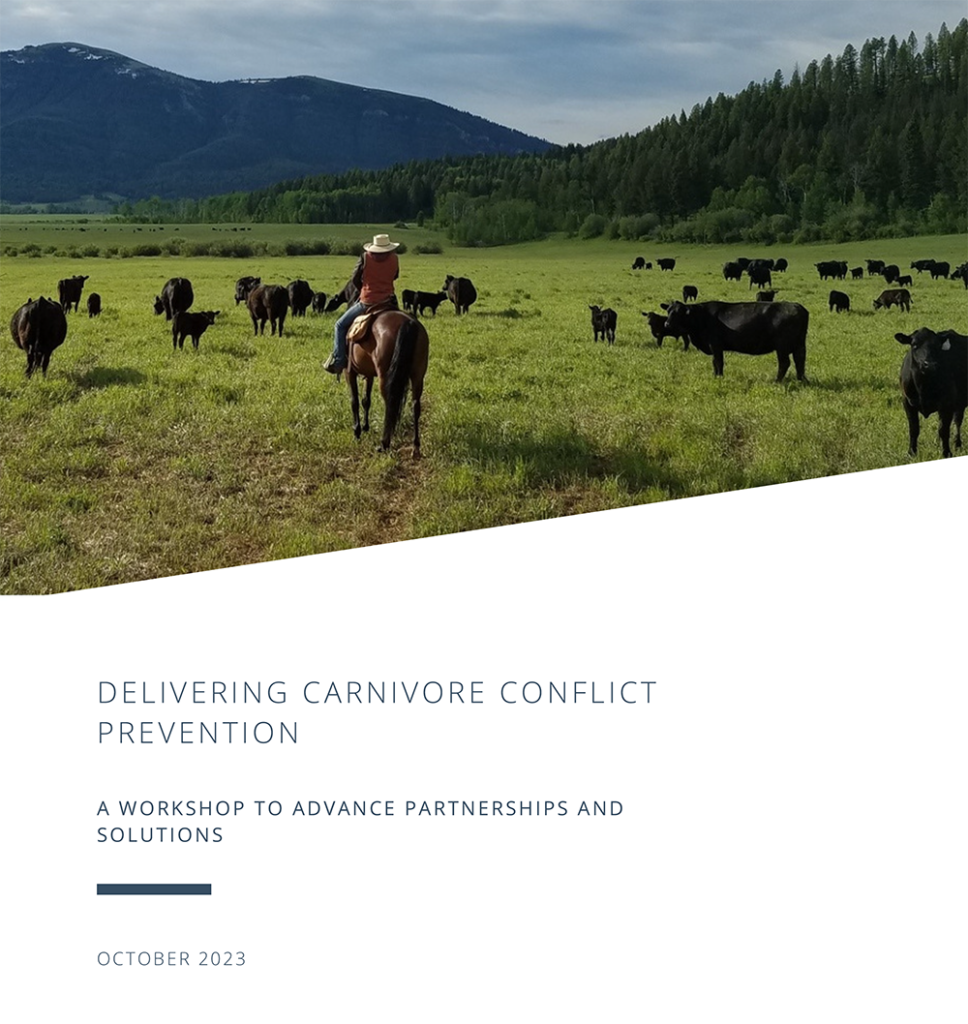Carnivore Conflict Reduction
Supporting Collaborative Efforts to Maintain
the Viability and Legacy of Working Lands
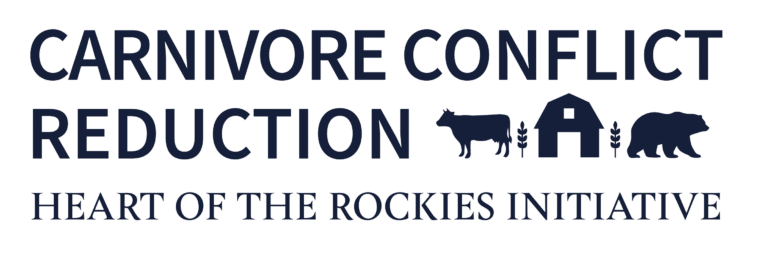
Farmers and ranchers are the backbone of rural communities throughout the Transboundary Rocky Mountains. For decades, these agricultural producers have pioneered techniques to prevent wildlife conflicts before they happen, helping to maintain agricultural operations and rural communities in the region.
As large carnivore populations have continued to expand into their historic habitat, managing conflict has become even more important to ensure both the economic sustainability of producers and the ability of carnivores and other wildlife to move through the landscape without conflict. As the need for management has grown, so has the financial burden on farmers and ranchers. If farms and ranches are going to remain in private hands and viable in this region, producers need support managing conflict with large carnivores on this iconic landscape.
Heart of the Rockies Initiative’s Carnivore Conflict Reduction program is building a collaborative, community-led movement to connect landowners and Tribes with resources to support conflict prevention efforts and sustain working agricultural operations on undeveloped private lands.
Conflict reduction toolbox
Wildlife and working lands benefit when producers and landowners have reliable and predictable access to tools and resources that can prevent conflicts from happening in the first place. Agricultural producers have already pioneered several time-tested and non-lethal conflict prevent practices which can be scaled to fit operations:
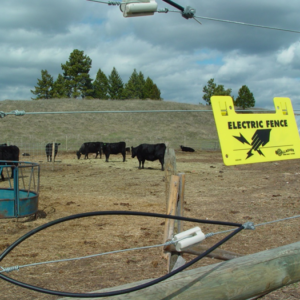
Electric Fencing & Matting
Multi-strand electrified wire and drive-over electric mats deter bears from accessing attractants such as calving yards, apiaries, chickens and other small livestock, as well as stored grain and crops.

Range Riding
Riders provide human presence and vigilant monitoring of livestock and carnivores to discourage conflicts across larger tracts of land. They can aid in monitoring livestock health, managing herd movements and dynamics, and support early detection of carcasses.
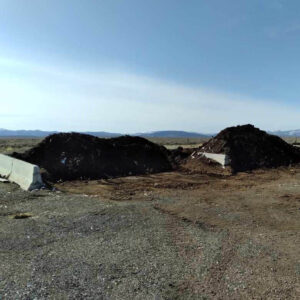
Carcass Management
Organized and timely pick up of deceased livestock removes an attractant that can otherwise draw carnivores onto properties and rangelands. Removing carcasses reduces the likelihood of conflicts, particularly during calving seasons. Composting sites, used in conjunction with carcass removal, break down carcasses to further eliminate attractants.
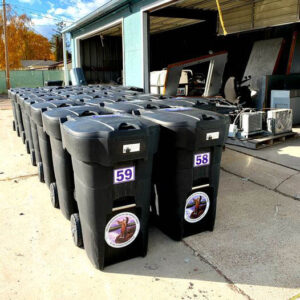
Bear-Resistant Community-Scale Waste Management
A fed bear is a dead bear. Bear-resistant ranch and residential containers and community refuse facilities securely store waste and prevent bears from learning to use human-related food sources, which can increase conflict.
scaling up the solutions
While conflict reduction tools are becoming more common, the reality is most producers find it financially difficult to adopt and sustain these practices on their own. To help meet this growing need, Heart of the Rockies and other diverse partners are advancing policies and strategies at both the state and federal levels to direct more dedicated funding for carnivore conflict reduction projects.
The critical importance of this work was highlighted at a 2023 workshop exploring solutions to scale-up funding, technical assistance, and coordination of conflict reduction tools. The event brought together landowners, agricultural producers, Tribes, state and federal agencies, and nonprofit organizations from across Montana and the West.
We invite you to review the report and video below:
Workshop Video
HISTORIC INVESTMENT FOR MONTANA WORKING LANDS
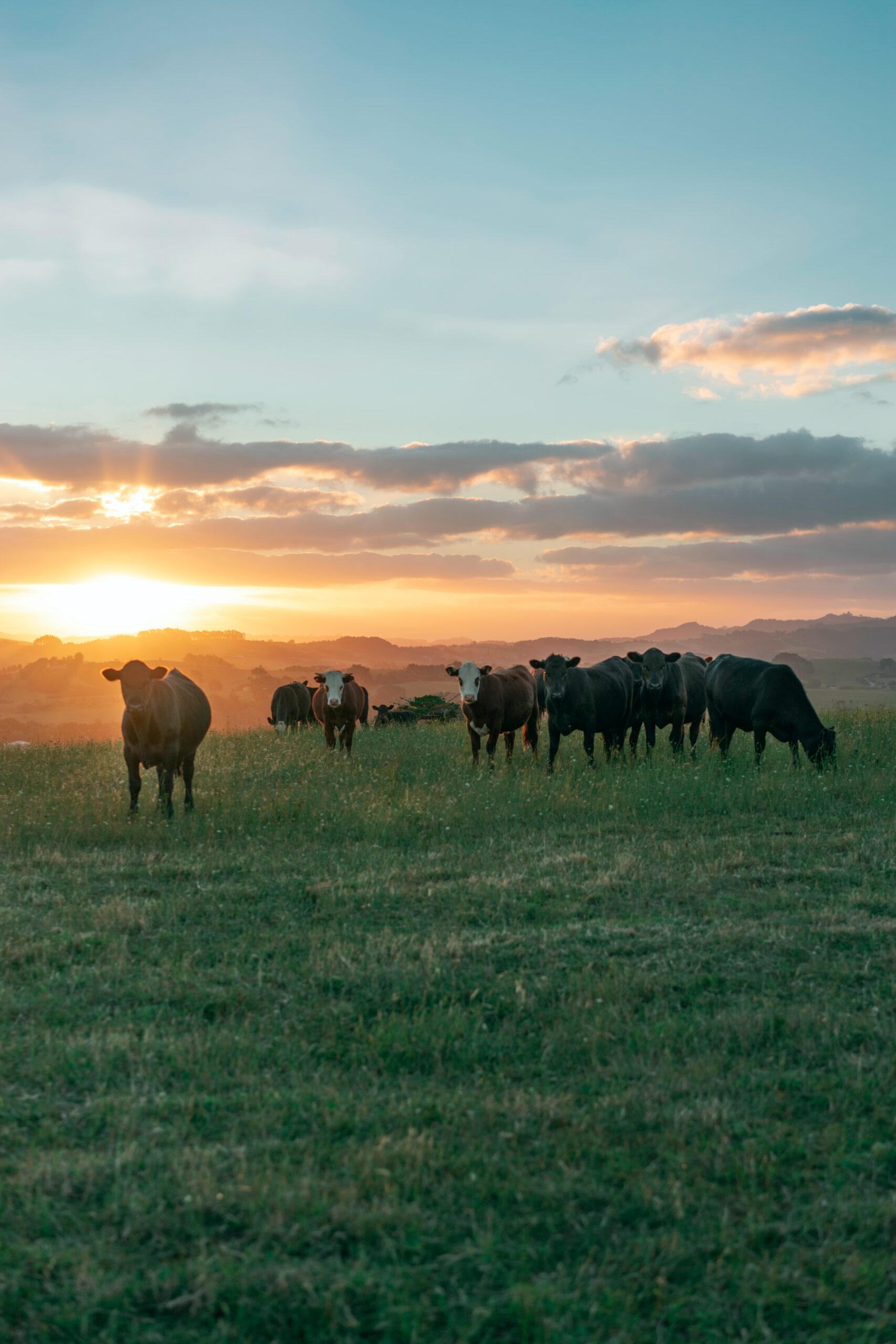
Nearly $5 million of the overall investment will be awarded by the National Fish and Wildlife Foundation’s America the Beautiful Challenge program, to be administered by Heart of the Rockies and Montana Fish, Wildlife & Parks. An additional $6-7 million will be awarded by the Natural Resource Conservation Service Regional Conservation Partnership program.
The first round of funding will be allocated in late 2024 to landowner-led organizations who already participate in conflict reduction programs. Additional funding opportunities will be available later this year for qualifying landowners, tribal wildlife agencies, and producers to help cost-share the adoption of electric fencing, carcass removal programs, range riding, and rural sanitation.
Over the next five years, Montana will be awarded nearly $12 million to help implement and expand conflict reduction programs on working lands shared by grizzly bears and other wildlife.
This means farmers and ranchers will soon have better access to funding and technical assistance to help minimize conflicts between carnivores, livestock, and other attractants.
Demand for conflict prevention funding in Montana currently outpaces availability by 3 to 1. The historic investment in working lands is the result of a diverse public-private partnership between landowner-led organizations, Montana Fish, Wildlife & Parks, non-profit groups, Tribes, the Natural Resources Conservation Service, and the U.S. Fish and Wildlife Service.

Financial Assistance available in Montana
Partners
Development and implementation of conflict prevention tools require the participation and cooperation of many parties. This work has been a collaborative effort that relies on the lived experience of livestock producers and Tribes who directly experience conflict. Heart of the Rockies convenes the Landowner-Led Conflict Reduction Partnership, a Montana partnership of nine landowner-led groups and the Confederated Salish and Kootenai Tribes, that support one another in carnivore conflict prevention efforts.
Each member of the Landowner-Led Conflict Reduction Partnership serves as the voice for dozens of local landowners and producers under their membership and regularly communicates local interests and concerns to Heart of the Rockies and other project partners. In addition, the knowledge and experience of staff from multiple agencies, including Montana Fish, Wildlife & Parks, Wildlife Services nonlethal staff, and U.S. Fish and Wildlife Service Partners for Fish and Wildlife and Grizzly Bear Recovery Office staff, contribute to increased effectiveness of conflict prevention tools through both financial and technical assistance. Several non-governmental organizations also provide local assistance to landowners and communities and offer their expertise in outreach and communication.
Partners Map


